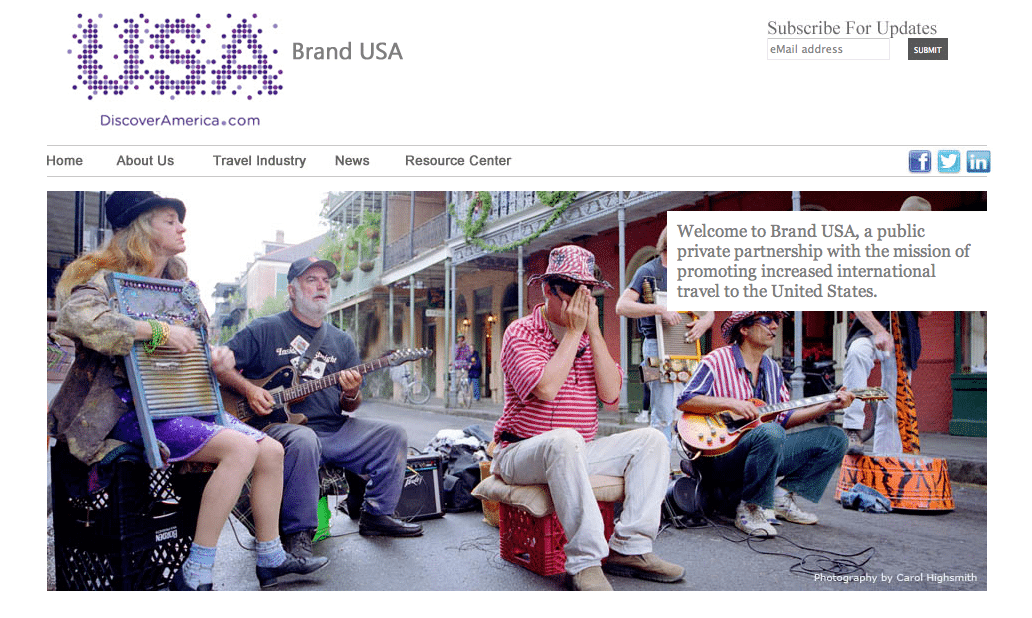Brand USA's 47-to-1 Return on Investment Claim Attracts Doubts Even Among Supporters

Skift Take
There's lots of goodwill around Brand USA, but that could quickly dissipate if the marketing organization continues to take credit for others' work in an attempt to win new funding from Congress.
With Brand USA looking to get re-authorized by Congress for 2015, the official U.S. tourism-marketing group commissioned a study that claims it produced $47 in international visitor receipts for every $1 it spent in marketing -- a return on investment that even the group's supporters say defies belief.
Travel industry analyst and researcher Henry Harteveldt calls Oxford Economics' 47 to 1 ROI calculation attributed to Brand USA "disingenuous" and "incredibly aggressive."
Joe Buhler, a tourism consultant and former North America director of Switzerland Tourism, says the Oxford Economics analysis is "hard to prove or disprove but not entirely satisfactory," adding he's always skeptical about "numbers claiming billions of dollars of directly attributable spending, especially to brand marketing."
A tourism official who declined to be identified because the official's group partners with Brand USA, read the Oxford Economics study [embedded below], and labels its claims "overstated."
Brand USA Gets Credit for Everything Else
The study's methodologies are complex, but in layman's terms Oxford Economics measured the economic environment and other trends that would have impacted international arrivals to the U.S. and visitor spending without Brand USA's involvement, and basically attributed virtually ALL other incremental visitor arrivals and spending to Brand USA.
Oxford Economics also used two additional analyses, including a survey of consumers in Mexico and Brazil, and a market share study, to validate its findings.
But even Oxford Economics includes a caveat in the study.
"Assuming that all of the difference between observed growth and counterfactual [Oxford's term for its economic and trends analysis] is due to marketing activity [by Brand USA] arguably provides an upper estimate of Marketing Return on Investment (ROI)," the report states.
Analyzing the year ended September 30, 2013, the study commissioned by Brand USA found tha

